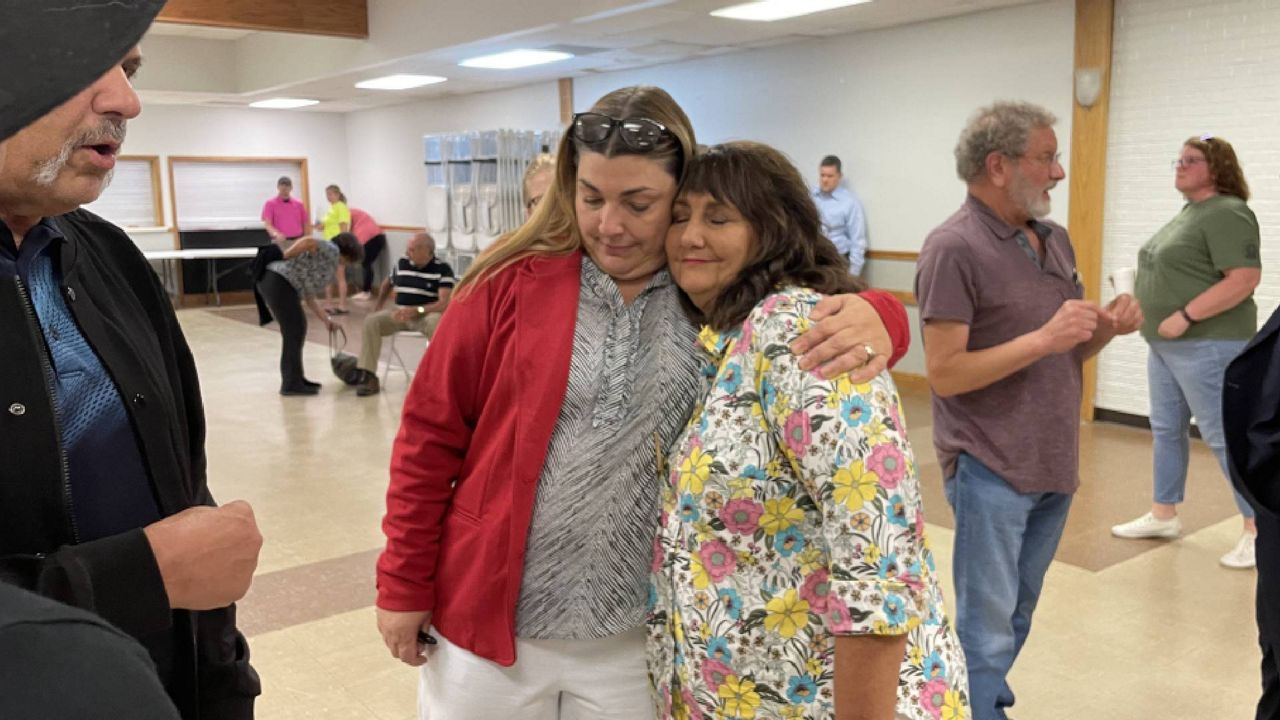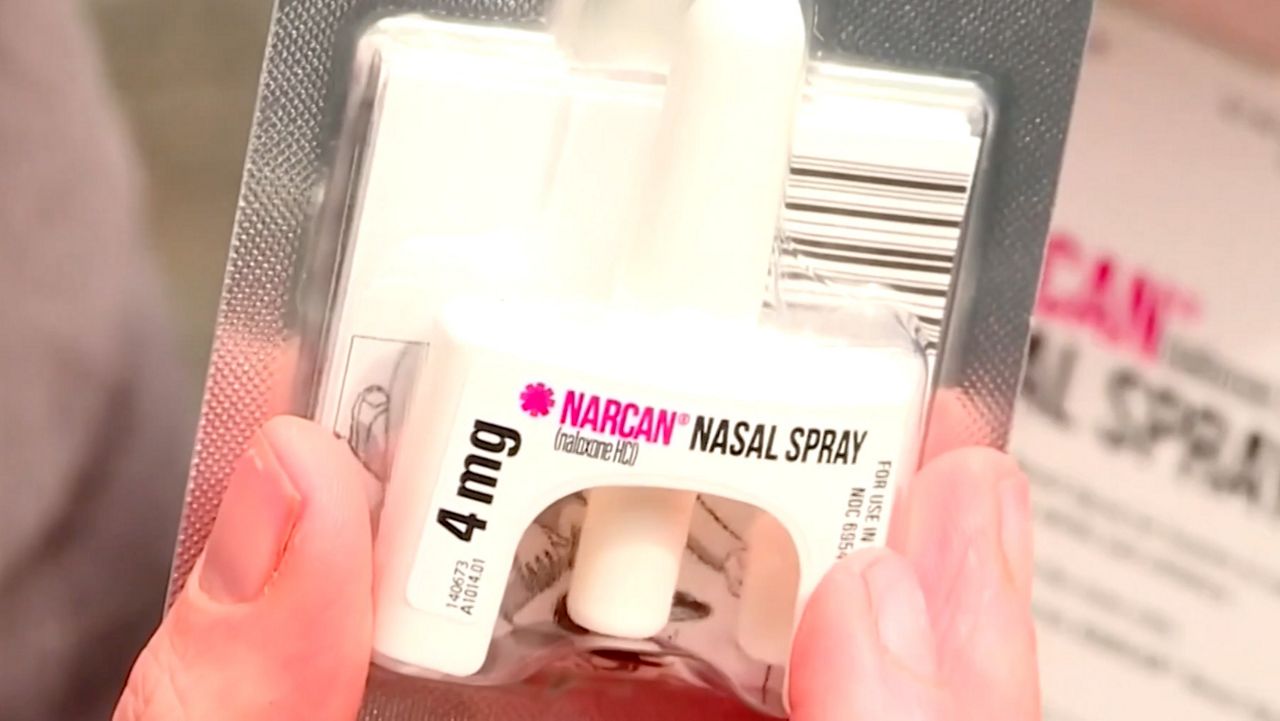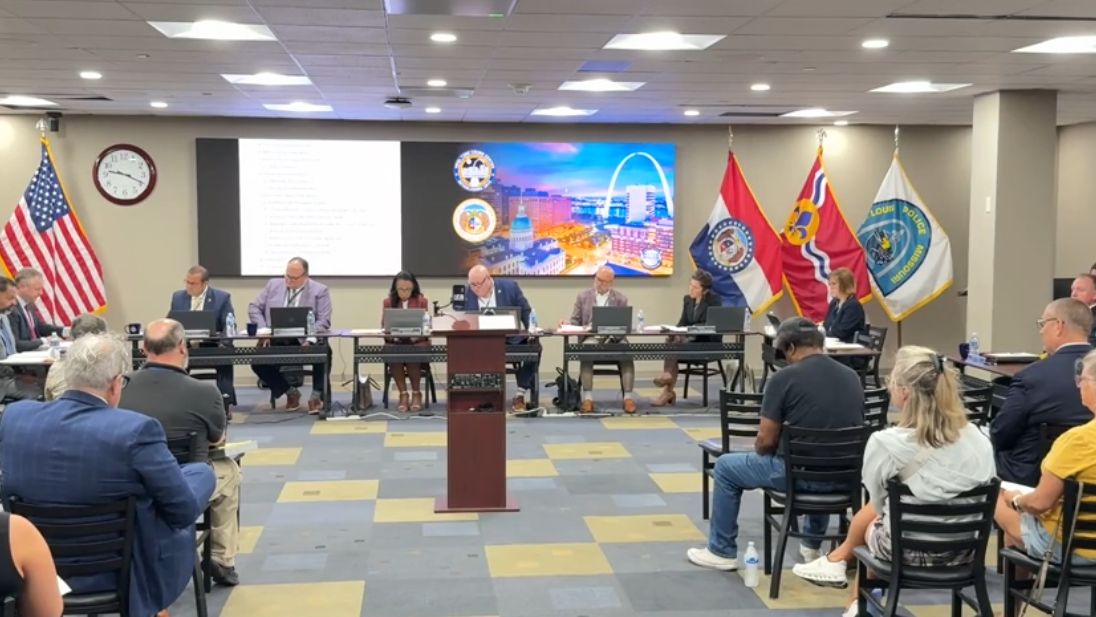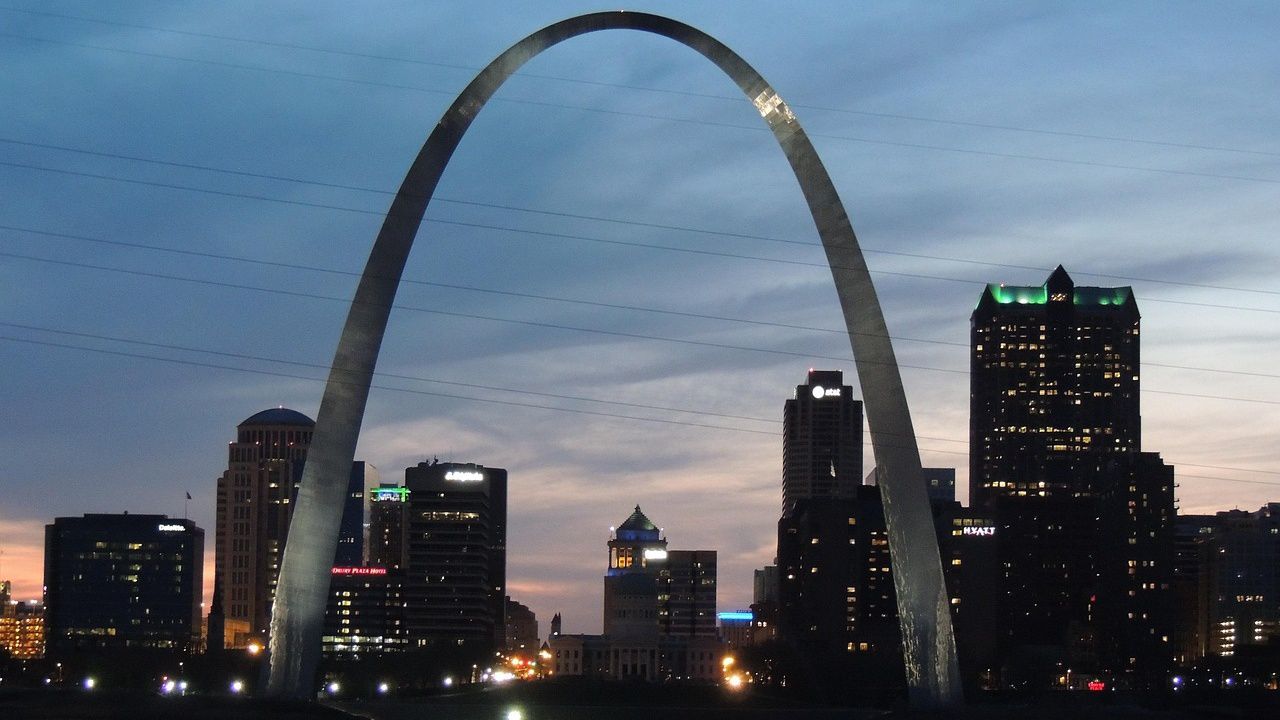NEW MELLE, Mo.—When Deborah Alessi woke up Wednesday, she didn’t have plans to be in New Melle at the tiny St. Charles County city’s sports and recreation center at night. That changed when a work acquaintance told her about a town hall meeting.
Alessi, a St. Charles County Circuit Court Judge who is used to handing down sentences, has been living through one. Alessi says she lives her life in “two month increments”, thanks to stage 4 lung cancer that has spread to her pelvis, spine, skull, lymph nodes and liver. A year after her diagnosis it went to her brain leading to a stroke and a heart attack. She’s told her story to others before, but Wednesday was different. She shared her story in front of packed audience of residents from around the St. Louis region who gathered to learn more about federal legislation to help those with medical conditions created by exposure to nuclear radiation.
Alessi grew up in North St. Louis County near the airport, and Coldwater Creek.
After news reports reviewing 15,000 pages of documents dating back to the birth of the atomic bomb painted a picture of government and corporate indifference to concerns over nuclear contamination, advocates said they wanted to hold meetings to unite the region and to demonstrate the connective threads. Through the enrichment of uranium or the disposal of waste, the plights of residents of the city of St. Louis, North St. Louis County, the Coldwater Creek flood plain, the area of the West Lake Landfill and into Weldon Spring are all connected, advocates say.
Legislation introduced by U.S. Sen. Josh Hawley, which would add residents in 20 St. Louis area zip codes with certain medical conditions to a list that would qualify for federal payouts to cover medical costs and survivor benefits, was added to the National Defense Authorization Act, and passed the Senate. It still has to get reconciled with the House before getting signed by President Biden.
Wednesday’s meeting was a chance to hear more stories of people impacted by the issue, while at the same time enlisting those people in a mission to help get the best version of the legislation across the finish line.
As it stands now, the bill doesn’t include all of the potential zip codes where affected residents could live, and it doesn’t cover all of the possible illnesses. But that could change.
After two hours of emotional testimony, staff members for Sen. Hawley, U.S. Sen. Eric Schmitt, R-Mo., U.S. Rep. Blaine Luetkemeyer, R-Mo. and U.S. Rep. Ann Wagner, R-Mo., both representing parts of St. Charles County, took in information about new zip codes, and other illnesses.
The legislation would reauthorize a measure first passed almost thirty years ago which has paid out more than $2.6 billion in claims for victims of nuclear testing in Nevada, Utah and Arizona. The bill would make the Missouri zip codes eligible, along with New Mexico, Colorado, Montana and Idaho, as well as previously excluded areas of Nevada, Utah and Arizona
That means the bill isn’t just Missouri’s fight. But supporters say passage will require an all-hands on deck approach if they want to convince a lawmaker in, say, Wisconsin.
“Even in a room this size, you can have an impact out of state. They all have relatives and friends,” said Dawn Chapman, the North St. Louis County mother who co-founded JustMoms STL as an advocate for contamination victims.
“You’ve got a lot of people. If everybody will make that one phone call that’s how this gets across the finish line.”
Alessi said while she’s shared her story of survival in hopes of inspiring others, she’s ready to do more.
“I think that if each of us individually reach out to all of the people we know and our family members and our loved ones and our friends and ask them to make that call….it will have an exponential effect,” she said.
“The Department of Energy is very scared tonight and they should be because we’ve linked arms this time and we’re not letting go,” Chapman said.
No Special Session on hazardous waste fund
The meeting came one day after Gov. Mike Parson rejected a call from House Minority Leader Crystal Quade, D-Springfield, for a special legislative session to address funding for a state program that would investigate radioactive waste concerns.
A law passed in 2018 authorized the investigations, but the Department of Natural Resources has confirmed that the Radioactive Waste Investigative Fund has never received the money, which would be transferred from another fund that already has it.
"Governor Parson is concerned for the impacted communities, but this issue was caused by the federal government and should be fixed by the federal government,” a spokesman told Spectrum News on Tuesday.
That decision prompted bipartisan criticism from lawmakers who attended Wednesday’s meeting, including the House sponsor of the 2018 bill.
“I’ve been making that ask ten times a year since 2018 to get the legislation actually funded because a bill that’s not funded helps no one,” said State Rep. Mark Matthiesen, R-O’Fallon, who hopes the renewed attention now will mean it shows up as a budget item for the next fiscal year.
Matthiesen and State Rep. Doug Clemens, D-St. Ann, both argued that state testing would force the federal government’s hand.
“This budget line we’ve funded would allow them to test and indicate to the federal government, you’ve got a problem here, we want to see you go to work. Right now that’s not happening. Any funding in the budget line will allow the state of Missouri to start participating in this game at a different level.”
State Rep. Tricia Byrnes, R-Wentzville, agreed with Parson.
“The Investigative Fund is well-intentioned but it puts testing on Missouri taxpayers when the federal government knows what was brought in, made and dumped here,” said State Rep. Tricia Byrnes, R-Wentzville. “We need DOE (Department of Energy) to start answering tough questions from our region. We need our state agencies to have more power to alert Missouri when they are being ignored by the DOE.”









